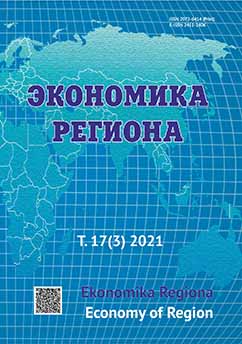Smart Sustainable Cities: Smart Approaches and Analysis
Smart Sustainable Cities: Smart Approaches and Analysis
Author(s): Natalia A. Vukovic, Viola Anatoylevna Larionova, Pierfrancesco MorgantiSubject(s): Social Sciences, Geography, Regional studies, Economic policy, Rural and urban sociology, Economic development, Socio-Economic Research
Published by: Институт экономики Уральского отделения Российской академии наук
Keywords: smart city; sustainable city; smart sustainable city; sustainable development; techno-centric approach; socio-economic approach; sustainable approach; human-oriented approach; urban environment;
Summary/Abstract: Nowadays, more than 700 smart city projects are developing worldwide. Smart-green integration in urban regions stimulates the development and implementation of the smart sustainable city (SSC) concept. The present research aims to analyse and classify modern approaches to this concept, as well as to identify which one is the most promising. Both rejecting and affirmative approaches to the topic of SSC were taken into account. We conceptually investigated and systematised modern affirmative approaches — technocentric, socio-economic, green economic and human-oriented ones. The analysed data on the smart sustainable city concept includes scientific works published and indexed in the international citation databases (Scopus and Web of Science), reports of the Organization for Economic Co-operation and Development, the United Nations General Assembly, the International Energy Agency, as well as the authors’ survey results from previous research. The paper highlights the current trend of the dominance of sustainable and human-oriented approaches in the smart sustainable city concepts and the growing importance of smart urban communities. The examination of the EU case study demonstrated the important role of sustainable development and wastewater treatment in evaluating and ranking smart sustainable. The obtained results demonstrate that 75 % of SSCs from the Lisbon ranking stated waste treatment as their priority. Only 7 of 28 (25 %) chosen cities did not achieve great results in this area. This fact proves the priority of waste treatment in the development of the smart sustainable city concept. The findings confirm that the research results could be implemented in smart sustainable cities around the world.
Journal: Экономика региона
- Issue Year: 17/2021
- Issue No: 3
- Page Range: 1004-1013
- Page Count: 10
- Language: English

